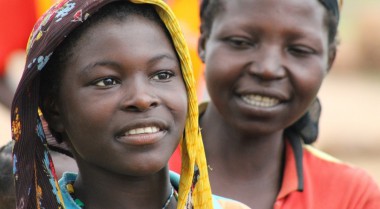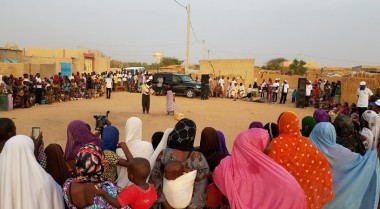
Forging Coherence on Two Vital Agendas for Sustainable Peace and Development - The Agenda 2030 and Sustaining Peace
Exciting movements are underway in and around the United Nations for those of us concerned with issues of peace, and the global agendas seeking to operationalize, and realize, new frameworks and revitalized agendas to ensure a better world for all. Over the last year we have seen significant movements to assess and reorient United Nations' efforts towards greater commitments to sustaining peace and preventing conflict, as signified in April 27, 2016 twin Security Council/General Assembly Resolutions [1], We have also seen the adoption [2] of new global development framework – Transforming our World: The 2030 Agenda for Sustainable Development – that for the first time places peace concerns prominently at its core. It does this on the one hand by placing peace one of five areas of critical importance identified in the Preamble, and by dedicating one of 17 goals to the topic of peaceful, just and inclusive societies.
On January 10 of this year, new member of the Security Council Sweden took swift, admirable action to build upon the commitments laid out in the twin resolutions by hosting a Security Council ministerial level debate on sustaining peace and conflict prevention [3]. This important debate was opened by the new United Nations Secretary General António Guterres himself, as he threw his weight squarely behind the two resolutions, promising to "rebalance" United Nations efforts and place far greater attention on preventing violent conflict. He highlighted 2017 as the year OF peace and a year FOR peace.
It is worth stating that reflecting on parallel, and undoubtedly complementary agendas is a worthy goal – at the most basic level, to promote coherence which lies at the heart of effective peacebuilding. But it is not easy.
Presently there are efforts to bring these two agendas (sustaining peace/conflict prevention and Agenda 2030) together. In anticipation of the January 24 United Nations High Level Dialogue "Building Sustainable Peace for All: Synergies between the 2030 Agenda for Sustainable Development and Sustaining Peace" [4] – and to introduce the first of what will hopefully be a semi-regular blog series broadly covering the topic of forging and sustaining peace – I am sharing some of my thinking that has evolved over time and in relation to my policy and practice work on issues that lie at the heart of these agendas and their intersections.
It is worth stating that reflecting on parallel, and undoubtedly complementary agendas is a worthy goal – at the most basic level, to promote coherence which lies at the heart of effective peacebuilding. But it is not easy. I just had the opportunity with New Deal constituency colleagues to do precisely this – reflect upon how our New Deal for Engagement in Fragile States (a framework and policy dialogue process) will align with the new Agenda 2030 – which our three constituencies (the g7+ network of countries affected by conflict, OECD/DAC donor countries - INCAF, and civil society - CSPPS - the Civil Society Platform for Peacebuilding and Statebuilding) were very active in supporting the creation of. The result of this six months of reflection, debate, and negotiation is here.
Read the full blog post here.
-------
1 http://www.un.org/en/ga/search/view_doc.asp?symbol=S/RES/2282(2016)&referer= http://www.un.org/en/sc/documents/resolutions/2016.shtml&Lang=E
By Erin McCandless.


